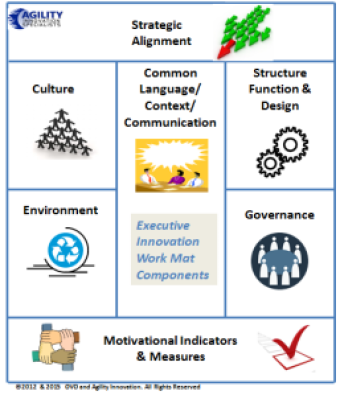
After a series of conversations around the Executive Innovation work mat, Jeffrey Phillips and I decided there was a need to add one more to the series, one that makes the business case for the work mat, one that is more from the leaders perspective.
In this video conversation of around 13 minutes, we explore why the leadership of organizations needs to get deeply involved in the innovation activity.
The reason top leadership needs to be fully involved
How many of our organizations are not looking to search for new ways for organic growth, improve their profit margins and create differentiation? This makes innovation central to this CORE need.
Continue reading “Building the use of the innovation work mat as a compelling business case”









